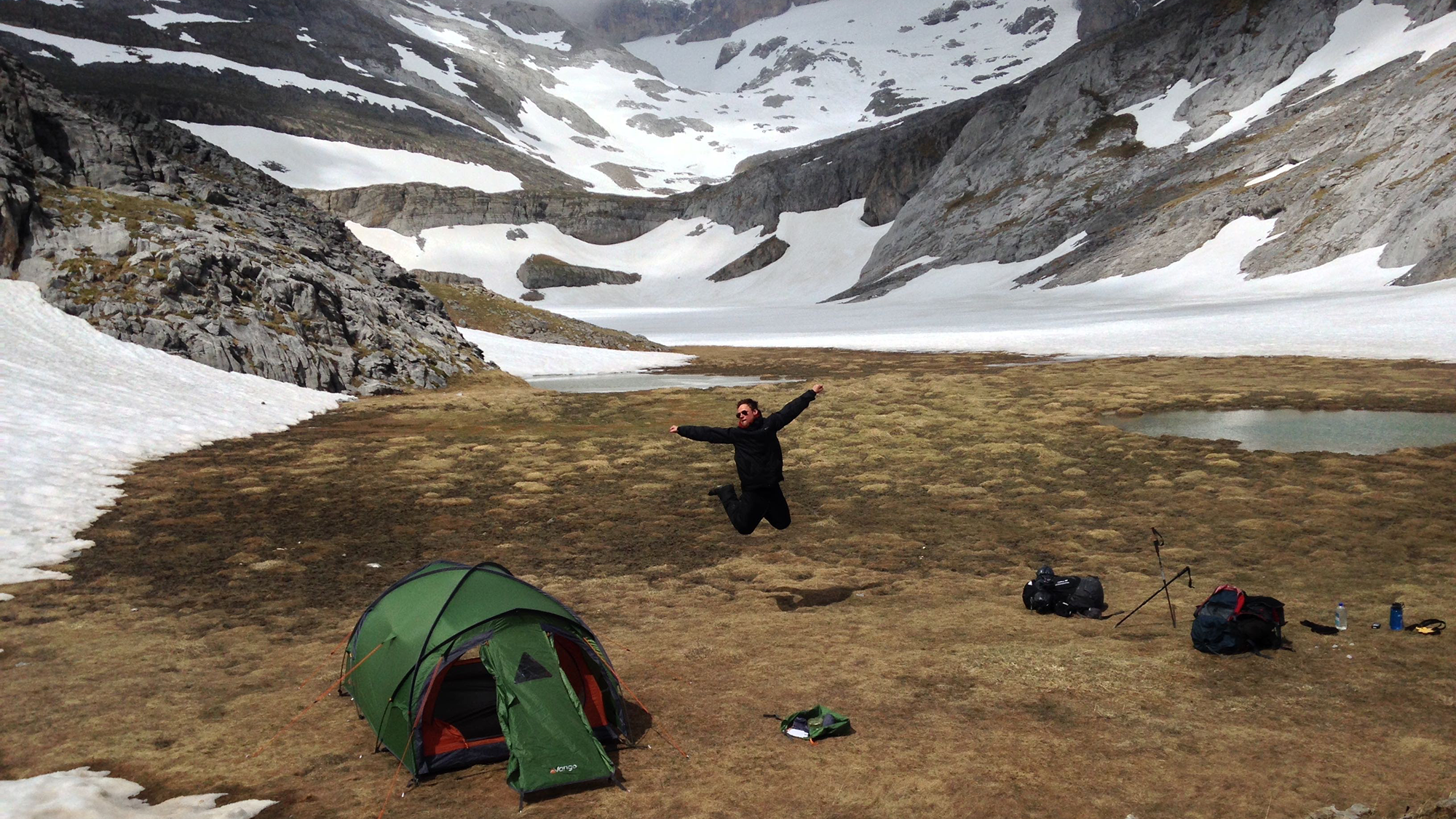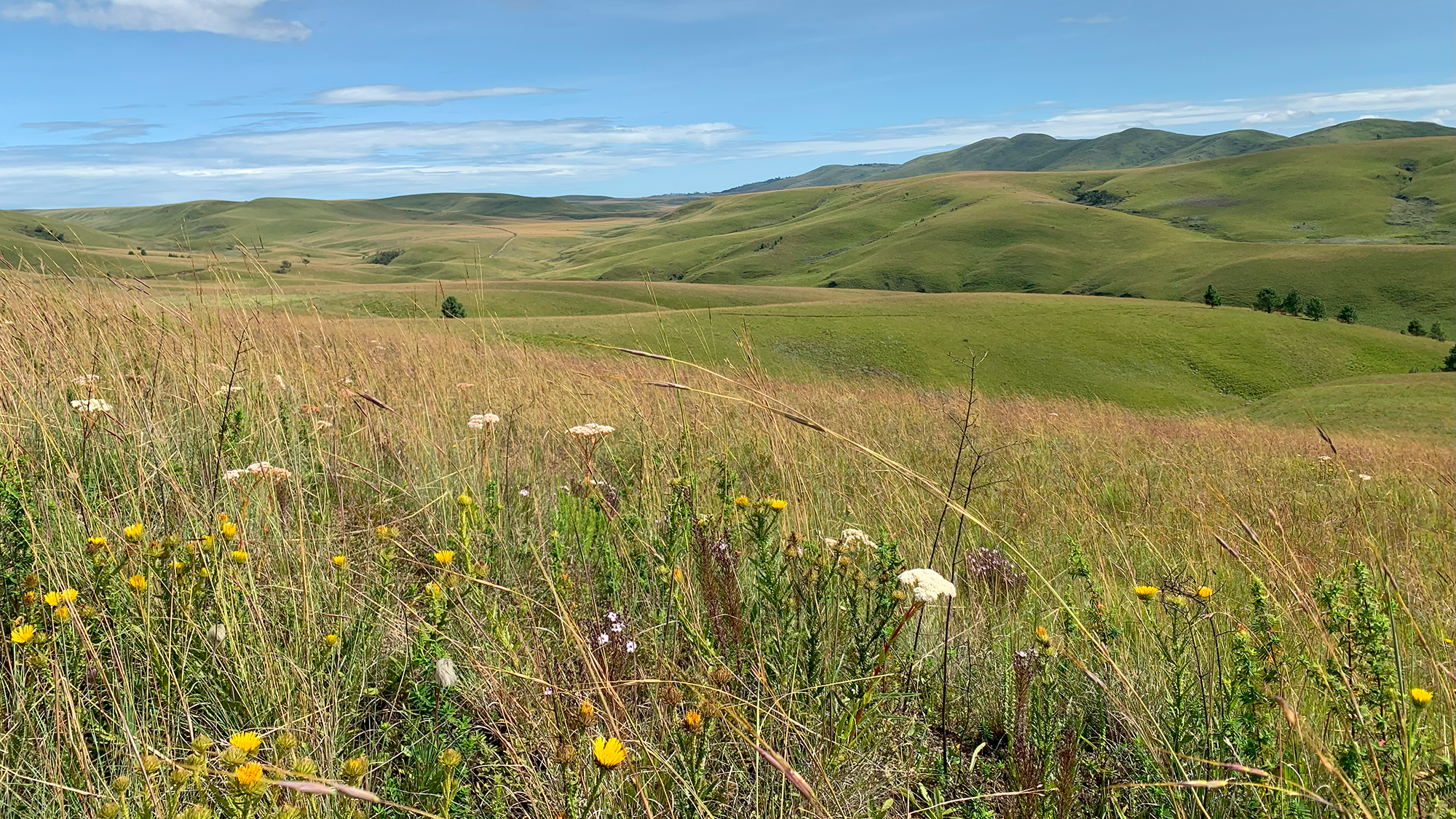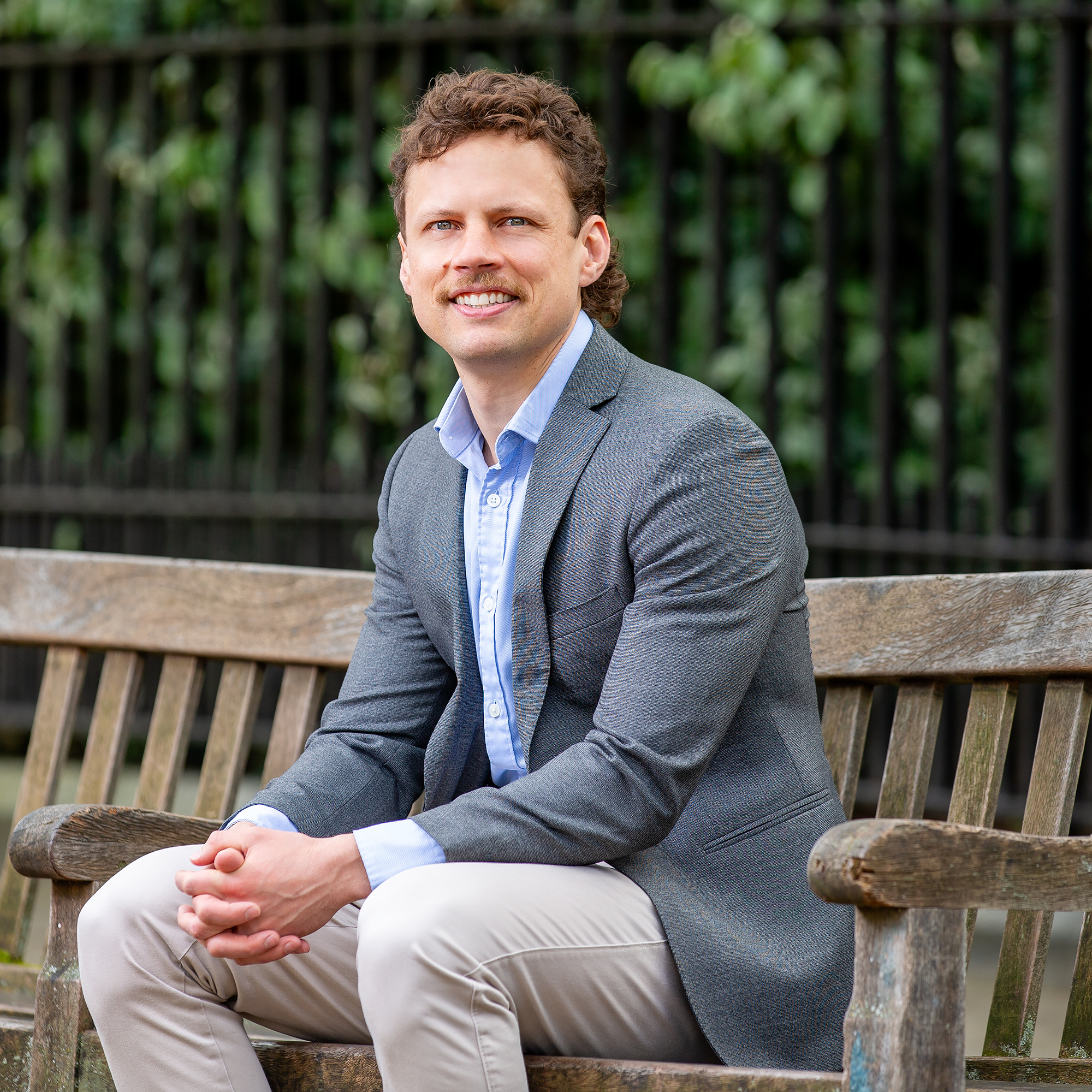
Sand dunes and beach, Western Australia
When I qualified as a commercial valuer in 2013, I quickly realised how small the property market in Perth, Western Australia was, as the most isolated major city in the world. When I took annual leave, all my time and money was spent travelling overseas.
I wondered if there was a way to combine work and travel and looked into whether my experience and qualifications as a valuer would be recognised overseas. Once I knew it was possible, the next question was where.
I settled on London: it offered a great base to explore Europe, and a chance to live and grow professionally in one of the world's alpha cities.
It felt like career arbitrage. I was trading up in scale, exposure and opportunity by moving somewhere more globally connected. I'd encourage any surveyor considering something similar to give it a go, especially before acquiring pets, partners or progeny.
I left Perth for London in 2014 and the move wasn't without risk. I was leaving a secure, well-paid job, my family, and a sun-soaked lifestyle for a city I didn't know, and had no professional network. But the potential returns made it a risk worth taking.
I planned to live in London for two years. I stayed for ten. That decade abroad reshaped the way I think about my career and the profession and, now back in Perth, I appreciate the opportunities that both sides of the world offer.
Career success abroad requires clear goals and willingness to learn
My first job interview in London was with a partner who had just valued the Gherkin. Seeing my slack-jawed reaction to his adopted valuation figure, he tried to put me at ease: 'Don't worry. The process is the same. There are just a few more zeroes over here.'
Unsurprisingly, I didn't get a second interview. But what I did get was my first experience of this much larger, more sophisticated market that was the reason for leaving Perth in the first place.
My learning curve was steep. When I did land my first role as a retail valuer at Cushman & Wakefield, I soon found parts of my university education that were largely theoretical in Perth's smaller market, were suddenly practical and relevant.
The most jarring difference? Leases. Specifically, long leases. Some leases I reviewed were older than Australia as a nation, written in archaic script, all for an annual rent of a peppercorn. It was absurd at first glance, but entirely normal in the UK where a whole market exists for trading long leasehold interests.
In Australia, long leases are rare and are mostly limited to Crown land, infrastructure and particular commercial developments. We simply didn't need them back in 1788.
By 1961, though, Australia had introduced strata title: a cleaner legal way to allow freehold ownership of individual units combined with shared responsibility for common areas such as gardens, roofs, stairwells and hallways, typically found in blocks of flats. This had resultant effects on market behaviour.
In Perth, much of my work involved valuing vacant strata units, with demand driven primarily by owner-occupiers and the leased investment market largely secondary. These leases were short, typically two or three years, and while tenant strength mattered, it was not a key driver of value.
In the UK, it was the opposite. Leases could span decades and the strength of the lease covenants were critical to value. The valuation process was the same, but the purchaser market and assumptions, owner occupiers versus investors, were entirely different.
It was difficult. It took me about a year to get my head around the market basics, but that was fine, I had moved to learn, and wanted to stretch myself and accelerate my career. If you're considering taking a risk like relocating, be clear on your reasons why, set a few goals, and know what rewards will make it worth it.
Soft skills can help you stand out
A mentor once told me: 'Location, industry, job – only change one at a time, or it's too much to manage.' It was good advice. I kept the same job and sector, but even then, the shift in location was huge.
Much of my professional knowledge didn't align with the UK's market structure. I was soon on the back foot and had to find ways to offer value while I caught up. So, as well as having clear goals and a willingness to learn, I would advise any surveyor starting out in a new country to emphasise their soft skills – they travel better than you think.
What helped differentiate me early on in the UK wasn't valuation, but communication. By chance, my time there coincided with a surge of proptech startups aiming to modernise the property sector. Many of the tools they were developing were already standard practice in Australia.
That gave me a useful point of comparison. I could share what worked, and what didn’t, in a more digital market where access to data was more open. I gave feedback directly to startups, employers, and others, to make sense of these platforms. Those conversations made me valuable in ways that had little to do with technical expertise.
Problem-solving was another soft skill I could draw on while working at Daniel Watey. The firm was going through a period of growth and running out of floor space for new staff. Like many other offices, around 20% of the floor-space was taken up by historic paper files; although one of my peers at a multinational confided that their employer had an entire floor dedicated to such archives. It struck me as bizarre that central London rents were being paid, in effect, to store paper.
The environmental case for going paperless is well known, but the financial one is often overlooked. I crunched the numbers and proposed digitising the files. It would free up floor-space, improve data access and avoid a costly and disruptive move.
The plan was adopted, and it gave me a foot in the door of the operational side of the business. Coincidently, a few months after digitisation was completed, national COVID-19 lockdowns were enforced. But because all the firm's IP was accessible remotely, the disruption to client services was minimal.
Taking APC proves commitment and value
When you leave your home market, you're no longer a known quantity. While the professional pilgrimage is well known for doctors, teachers or accountants, it is less so for surveyors.
Your CV will be full of unfamiliar projects, qualifications and abbreviations. It's essential to craft a clear narrative about who you are, what you bring and why you're here.
If you've already clarified your goals for moving abroad, and developed your soft skills, you're halfway there. But your story also needs to reflect your technical journey, something I didn't manage especially well at first.
I hadn't fully appreciated how differently the profession operates in the two countries. In Australia, surveying is highly siloed by both discipline and state, whereas in the UK it's far more integrated and holistic.
To complicate things further, while RICS has a respected and growing presence in Australia, the dominant professional bodies are domestic, and most qualifications are locally aligned. As such, my credentials as an Australian valuer didn't translate directly into the RICS framework.
At first, I was reluctant to take the RICS APC, having just completed something similar in Australia. But with encouragement from colleagues, I went ahead, and it was transformative.
It broadened my understanding beyond valuation, exposed me to other disciplines and, importantly, signalled to recruiters and employers that I was serious about integrating with the UK profession. It offered them a baseline to assess my technical ability and gave me a new view of the profession as a whole.

Pyrenees, France. Photo: Roland Williams
Trusted mentors can help you settle
Building a brains trust – a few dependable people you can turn to for advice – makes any move abroad easier. Find a mentor or more than one if you can.
What people sometimes overlook is how mentally taxing even basic tasks can become in another country. When I arrived, I got stuck in a loop: I couldn't open a bank account without a permanent address, I couldn't rent a flat without a UK phone number, and I couldn't get a phone number without a bank account. As for a job, recruiters told me to come back once I'd sorted all three.
It wasn't until I connected with a friend of a friend, someone who'd just moved to the UK herself, that things started falling into place. She showed me the ropes. Her guidance made it much smoother for me to establish myself.
I found another mentor in the form of a British colleague who became a friend. He helped me understand British work culture and, just as importantly, the structure of the UK property sector.
In Australia, the sector is highly specialised – read: siloed – with firms tending to focus solely on valuation, or lettings, or management. In the UK, he introduced me to the general practice model and multidisciplinary firms, and the expectation of a consultancy role.
A more formal mentor was a partner at Daniel Watney. Curious and driven, I was never short of questions about technical work, the business or the wider profession. He always made time to explain things. In an era where the need for fees has squeezed the time available for training, his willingness to mentor me stood out and made a lasting impact.
If you're in a position to support someone else, I'd encourage you to do it. It doesn't have to be long term but the effect can be lasting.
Positive approach leads to increased opportunities
One of the fastest ways to accelerate your learning in a new environment is simple: get involved. Say yes to challenging projects, professional events, seminars, coffee catch-ups and work socials. Say yes to client meetings – and, when appropriate, ask to sit in on those you weren't invited to.
Every 'yes' exposes you to something new. You'll quickly develop an understanding of the sector and the opportunities in it, and you'll build a new network. This matters, because your old one is thousands of miles away and in a different time zone.
Sometimes, the most unexpected opportunities arise from this mindset. For instance, I agreed to have a beer with an engineering friend I had met at university more than a decade before.
The last I'd heard, he was in Africa. It turned out he was now on his way back from Germany via London, having raised seed capital for an agricultural business in Tanzania. The venture, Dark Earth Carbon, aimed to turn organic agricultural waste into biochar – a carbon-rich soil additive. He was building a team and needed someone with property experience to help find sites for the various biochar reactors. Then he asked whether I would be interested.
What did I know about site acquisition in rural Tanzania? Nothing. But I remembered the lesson from my Gherkin interview years earlier: the process is the same. This time, there will just be a few more variables to consider.
Still, leaving London wasn't without risk. I was again abandoning a secure, well-paid job, friends and a lifestyle rich in culture, novelty and spontaneous travel. But the chance to help build a business from the ground up was another career arbitrage moment.
So I said yes, and once again, packed up my life and flew to the jungles of rural Tanzania.

Kitulo national park, Tanzania. Photo: Ian Cameron
Experience enables fresh perspective on returning home
What had begun as a two-year adventure turned into a decade-long career abroad. My work as a surveyor took me across the UK, into parts of Europe and as far as Tanzania and East Africa.
Over time, though, the desire to be less transient and put down roots began to grow. Of all the places I'd seen, Perth, with its space, pace and sandy soil, still looked like a good place to come home to. So at the end of last year, my partner and I moved back.
Coming home with ten years of global experience has changed how I see the city. What once felt limiting now looks full of opportunity. As a result I've started my own venture, drawing on the varied skills, lessons and inspirations I have picked up along the way.
It's not without risk; but neither was leaving my first job in Perth ten years ago. That decision paid off more than I could have imagined. I'm betting this one will too.
Ian Cameron MRICS is the founder of Perth Short Term Rental, surveying consultant at Dark Earth Carbon, and the author of the current edition of RICS’ Impact of carbon markets on the rural economy. If you're a surveyor considering a move to Australia, the UK or Europe, he is happy to share advice, contacts and ideas
Related competencies include: Valuation, Strategic real estate consultancy

Photo: Mark Weeks

